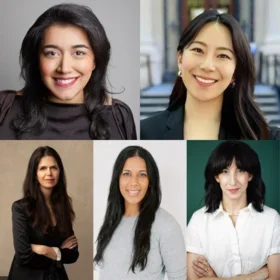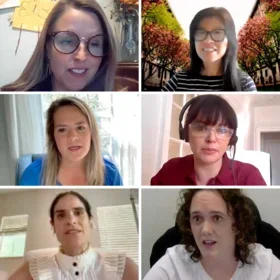By Gerardo Rios Garcia
Kyle Jacobs, an alumnus of Columbia University’s Master of Science in Sustainability Management (SUMA) program, is making waves in the entertainment industry with his unique approach to storytelling.
His journey is marked by a passion for sustainability and a dedication to raising awareness about environmental issues through various media platforms. With his academic background as a Columbia HBCU Fellow and a graduate of Virginia State University, Kyle had a strong foundation for his future endeavors. After completing his studies at Columbia, he pursued a Master’s in Education from the Harvard Graduate School of Education (HGSE), further enriching his interdisciplinary expertise.
Currently, Kyle is working on a TV series titled I Don’t Care, which aims to push the boundaries of sustainability education, incorporating the United Nations’ Sustainable Development Goals (SDGs) in its message to the audience. After being exposed to various aspects of sustainability in the SUMA program, Kyle now believes that sustainability, with its multifaceted challenges and opportunities, provides a perfect theme for immersive storytelling and interactive experiences that can educate and inspire viewers.
What initially inspired you to create this television series? How do you see this story affecting public awareness and action?
I’ve always been passionate about global development. I noticed that no one was creating content around the social side of sustainability, and I don’t think people are aware of how their actions could have adverse effects on future generations. This gap inspired me to create a series that blends diverse genres while focusing on sustainability and the UN’s Sustainable Development Goals. Storytelling through film has the power to make complex issues relatable and engaging. I create relatable stories using current events to keep the narratives interesting. I also add a hint of horror to each film to show how realistic these scenarios can be. This approach can influence public awareness and drive action toward sustainability goals by making the audience feel the urgency and importance of these issues.
I aspire to be the Jordan Peele of the sustainability world, and I want people to be deeply concerned about how their actions contribute to the success or downfall of future generations. My goal is to inspire audiences to rethink their environmental choices and actively contribute toward a more sustainable future.
How do you balance entertainment value with the serious themes of environmental impact and sustainability?
By prioritizing compelling narratives and character development, I can subtly weave in serious themes without compromising entertainment value. People have to fall in love with the story first. I don’t want my audience to feel like they’re watching an environmental or sustainability-focused movie, but rather like they’re enjoying a typical movie or one of their favorite shows. The difference is that my content will have a very thought-provoking subtext.
How has your SUMA degree influenced your approach to filmmaking and storytelling?
The coursework in the SUMA program has significantly impacted my process. Classes on environmental policy and sustainable business practices gave me a solid foundation in sustainability principles. These courses, combined with hands-on projects and interactions with professionals in the field, helped me understand the complexities and nuances of sustainability issues. I realized that for many, sustainability is just a buzzword, and this realization drives me to raise awareness in unique and approachable ways. The program’s emphasis on practical application taught me how to convey complex sustainability concepts in a manner that is accessible and engaging to a broader audience.
Additionally, I found that the diversity within the field of sustainability is not as extensive as I had imagined, which motivates me to incorporate diverse perspectives into my work, making my storytelling more inclusive and representative of different voices.
As you continue to develop future episodes of I Don’t Care, how do you plan to keep pushing the boundaries of storytelling? Are there specific themes or challenges within sustainability that you’re eager to explore?
The entertainment industry has a major influence on the minds of younger generations. It has the potential to create a culture in which we can all understand why it’s important to protect our resources and change our behaviors. This industry can also reward and create opportunities for people to produce more content around these topics and shed a big spotlight on these critical issues.
I plan to use this significant cultural influence to push the boundaries of sustainable storytelling continuously. The series’ success will be based on the change and impact I can make with each episode, and I plan to partner with influencers and top experts in the sustainability and environmental fields to help make this happen. I’m eager to explore themes such as climate justice, biodiversity loss, and sustainable urban development in future episodes.
Looking ahead, what are your aspirations for the future of I Don’t Care and your career in sustainability?
I want I Don’t Care to take the world by storm, raising awareness of the United Nations’ SDGs and creating new partnership opportunities. I aspire to attract new talent and inspire the next generation to shape our future sustainably. My ultimate goal is for the series to profoundly impact audiences worldwide, encouraging them to make conscious environmental choices and contribute to a more sustainable future. I really want to partner and work with Hollywood and the U.N. to help this series reach its full potential.
I also plan on diving into the video game world and becoming the first African American to create an AAA game, drawing inspiration from postapocalyptic survival games like Days Gone. This is the best way to show the world the extent of what’s possible if we can all work together and the losses we could endure without timely interventions.
About the Program
The Master of Science in Sustainability Management program, offered by the School of Professional Studies in partnership with the Climate School, is designed for current and aspiring leaders who wish to pursue a career in management at the intersection of business and the environment.


